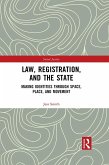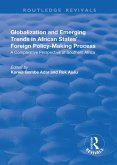

Ähnliche Artikel

eBook, ePUB
31. Juli 2024
Taylor & Francis eBooks



eBook, ePUB
1. November 2024
Taylor & Francis eBooks


29,95 €
Erscheint vor. 01.05.25


eBook, ePUB
10. September 2020
Taylor & Francis eBooks

eBook, ePUB
19. Dezember 2013
Taylor & Francis eBooks
Ähnlichkeitssuche: Fact®Finder von OMIKRON
